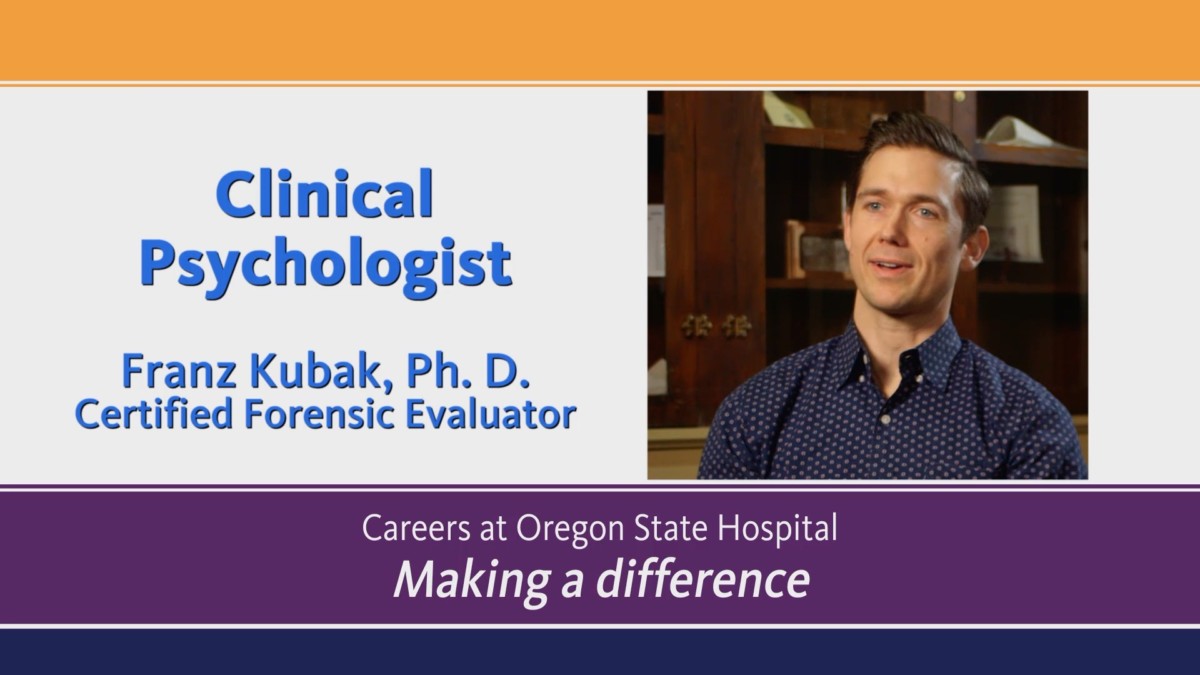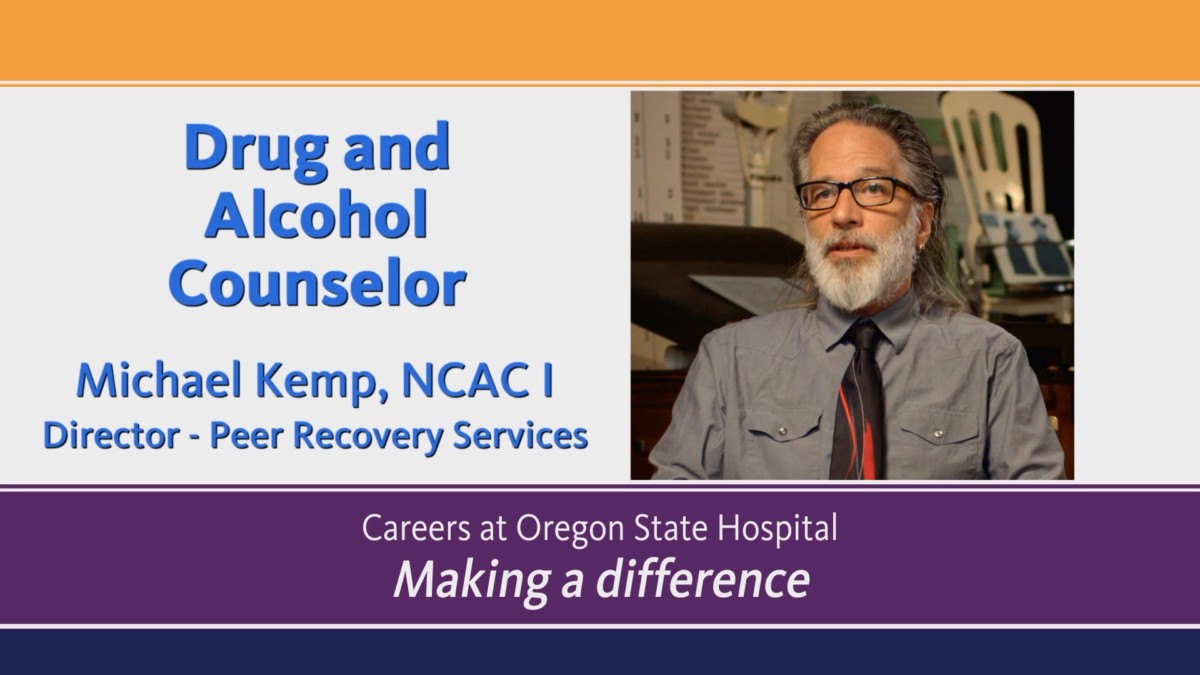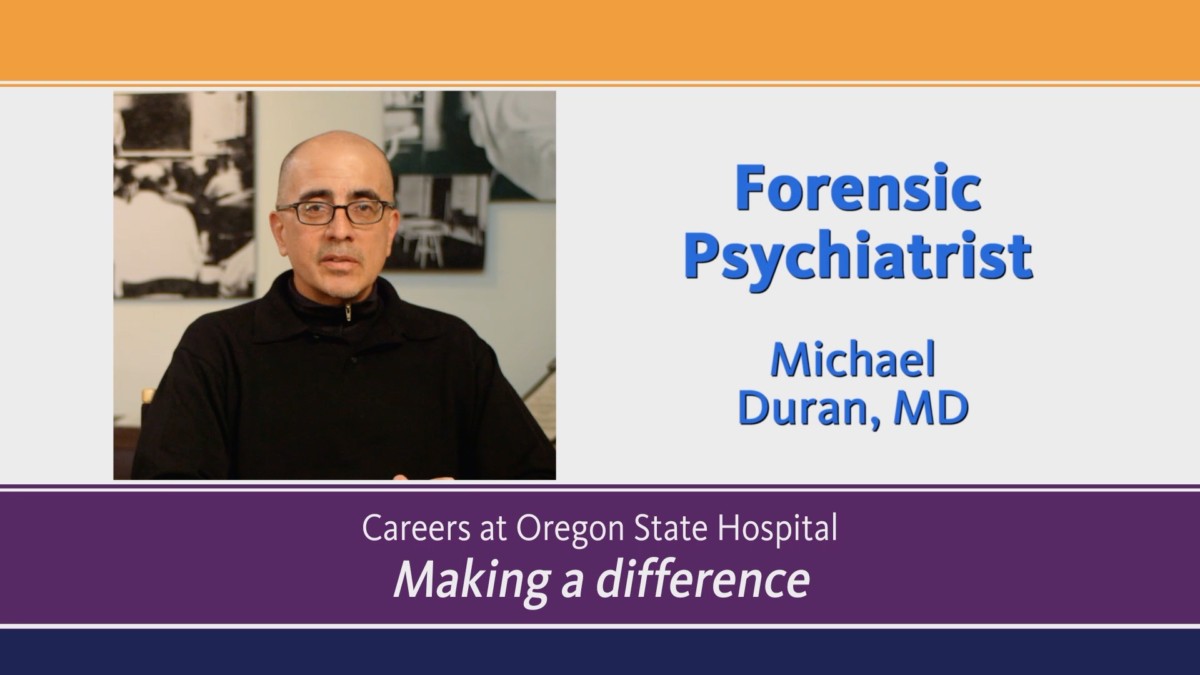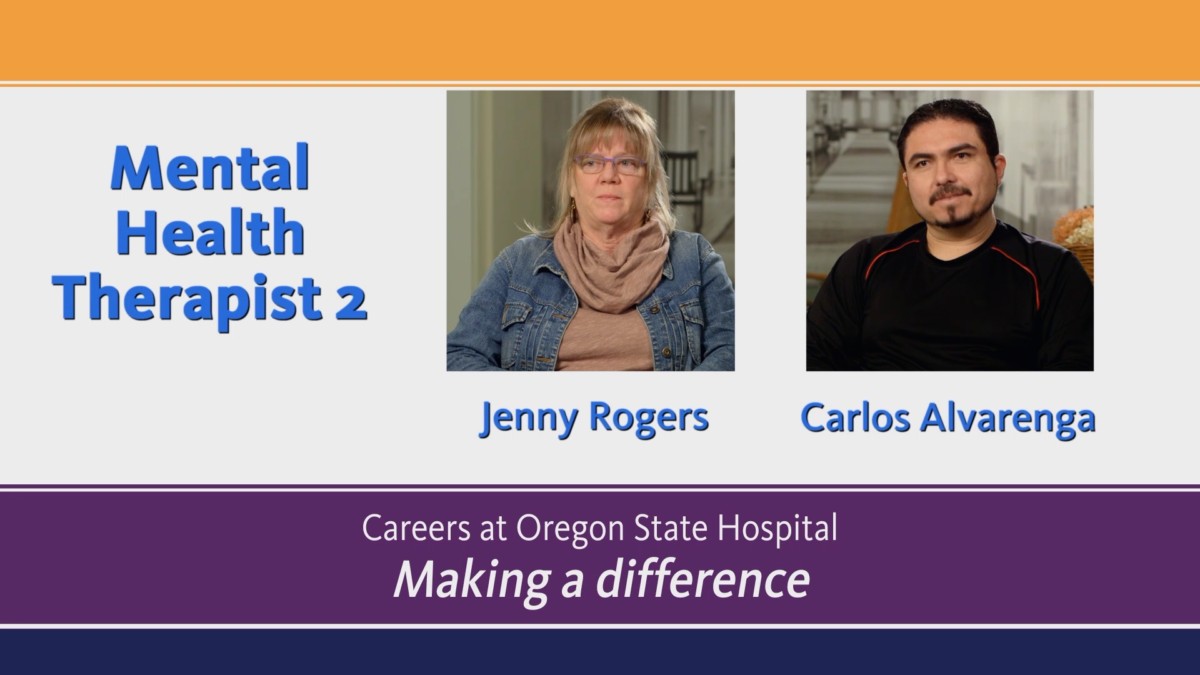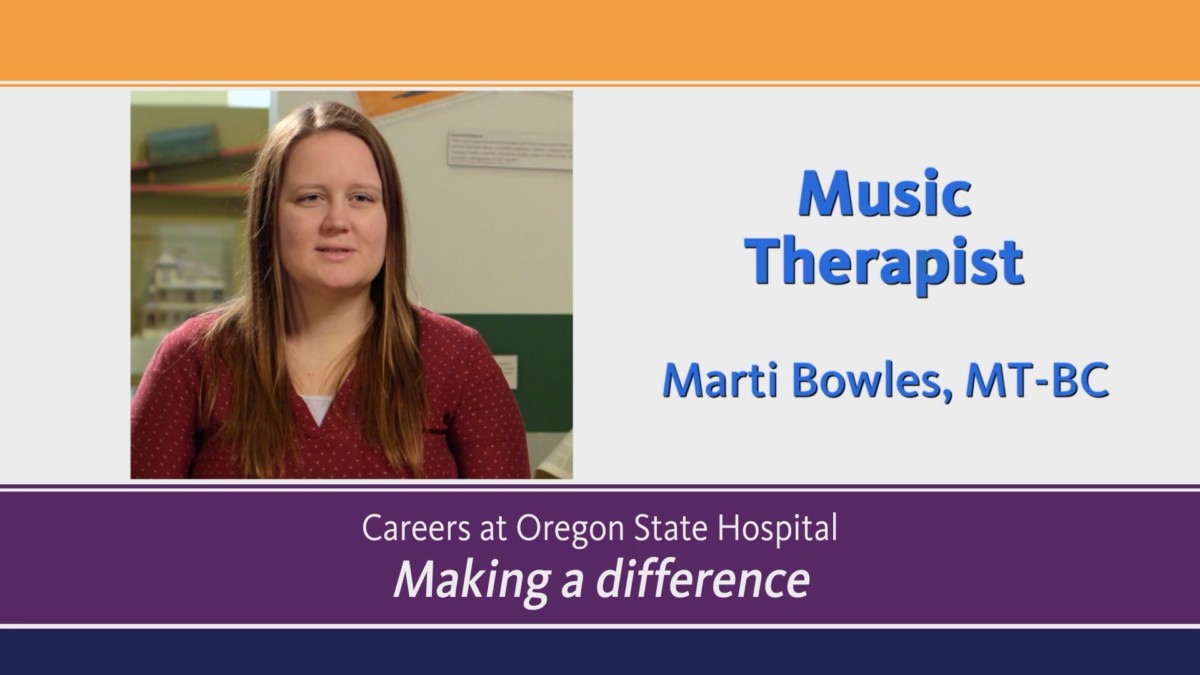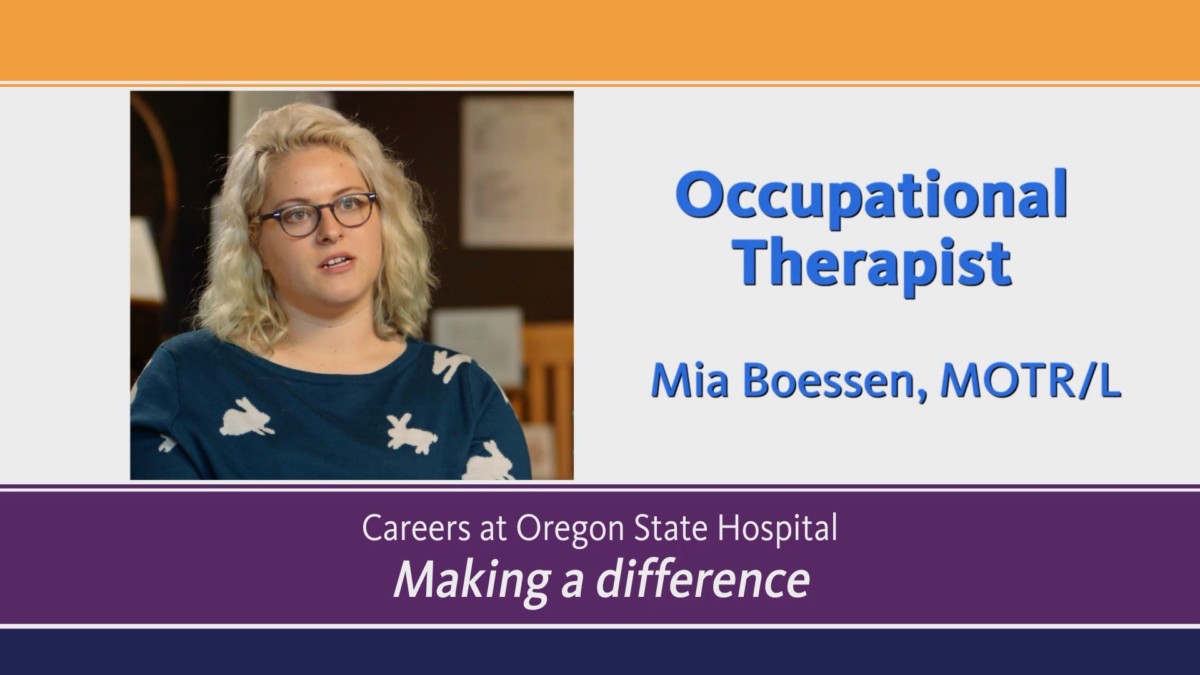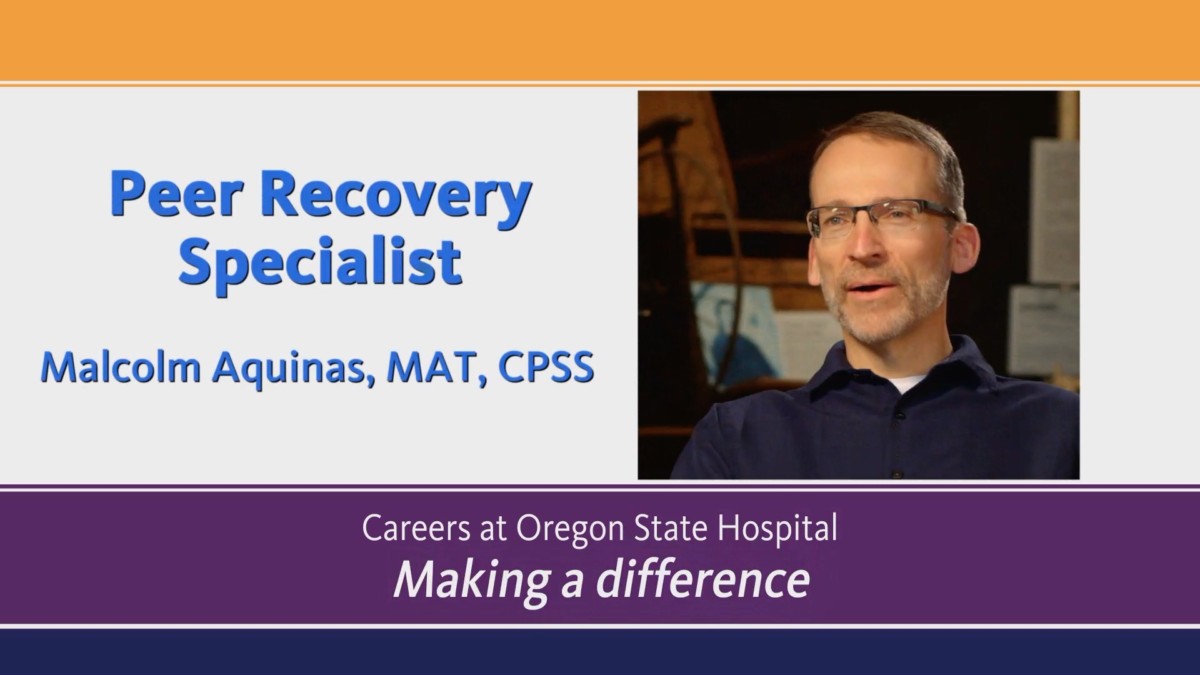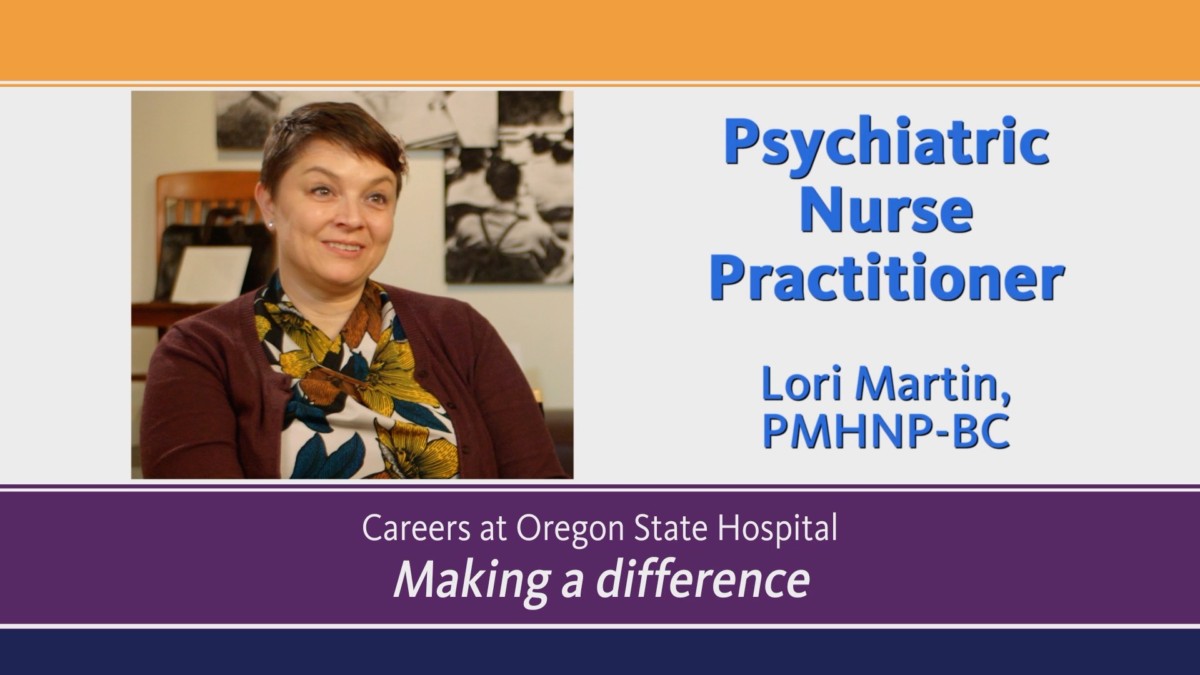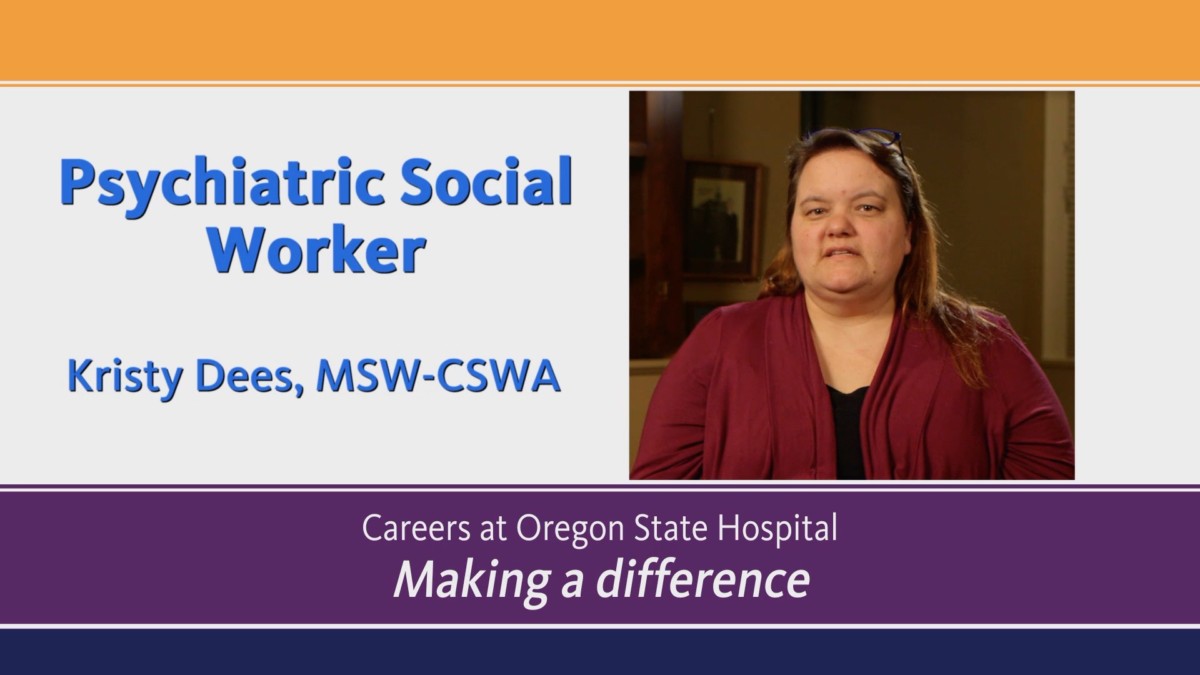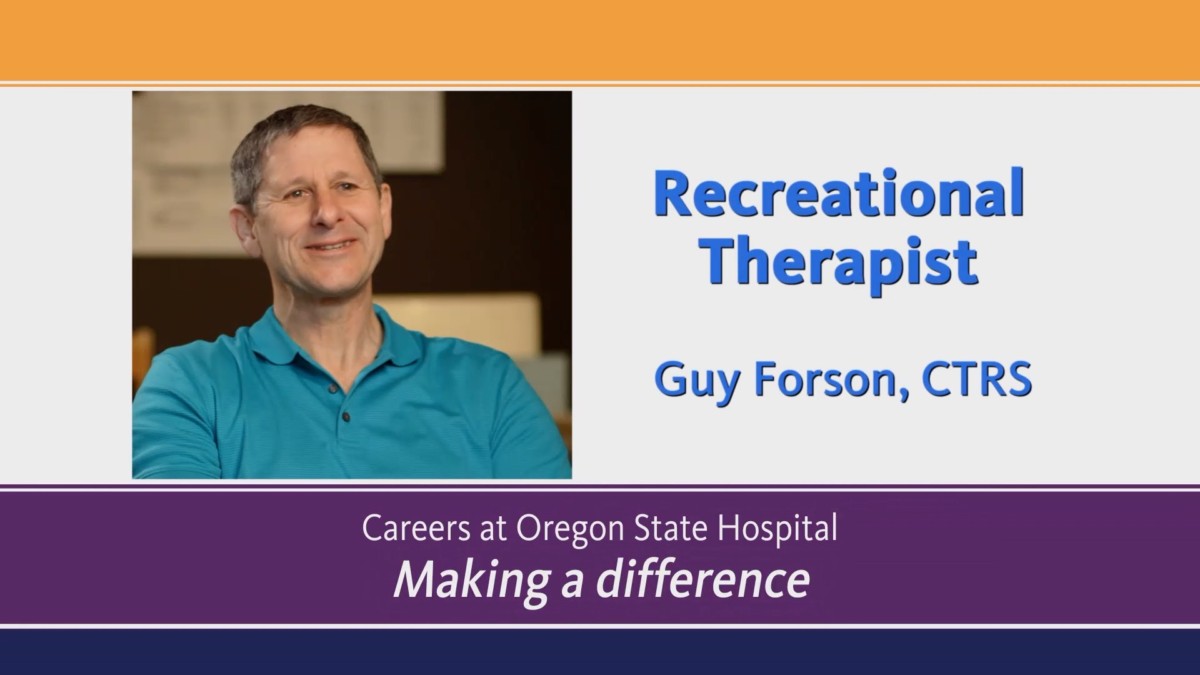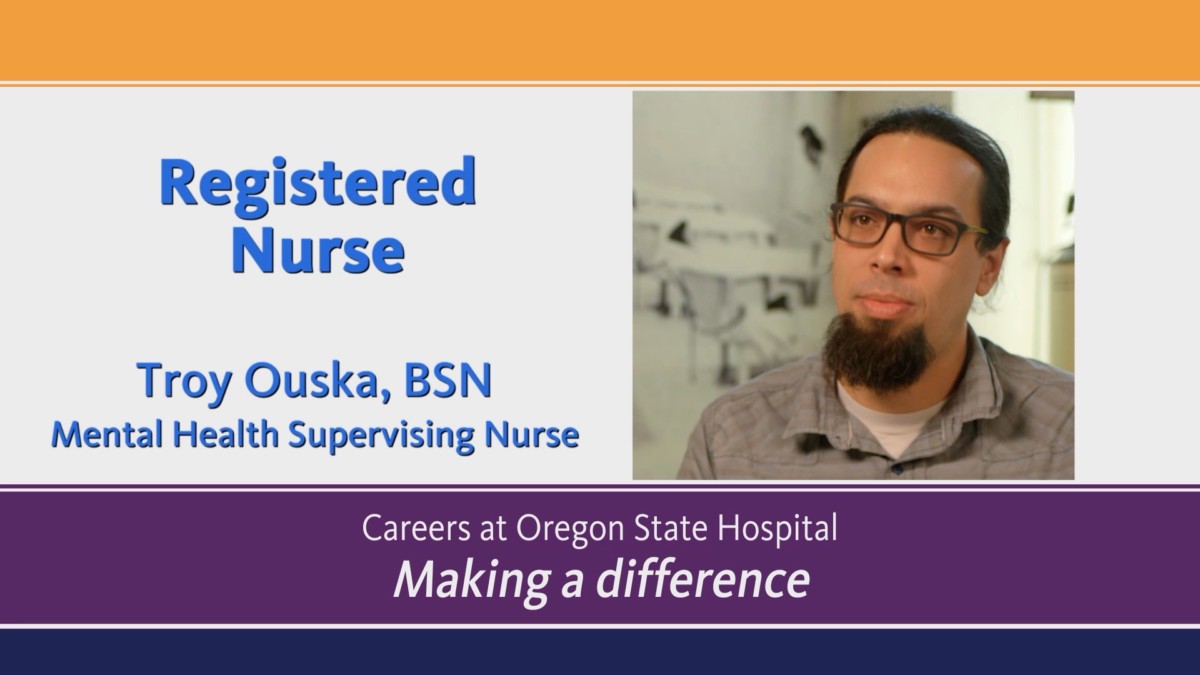Psychiatric Nurse Practitioner
Careers in Mental Health
Lori Martin, PMHNP-BC
Psychiatric Nurse Practitioner
Generic Information
Overview
At the Oregon State Hospital, Psychiatric Nurse Practitioners are part of the medical staff and function as leaders in the interdisciplinary patient care teams. The Psychiatric Nurse Practitioners diagnose mental health conditions and prescribe medications. The Psychiatric Nurse Practitioner has a graduate degree in nursing specializing in mental health issues and disorders. As licensed independent practitioners, Psychiatric Nurse Practitioners autonomously and, in collaboration with other healthcare professionals, assess, diagnose, treat and manage client’s mental health illnesses, medical needs, and/or substance addictions. They also serve as healthcare researchers, interdisciplinary team consultants, and patient advocates.
For more information on the educational pathway to this and other healthcare careers follow this Link to the Educational Resource page.


